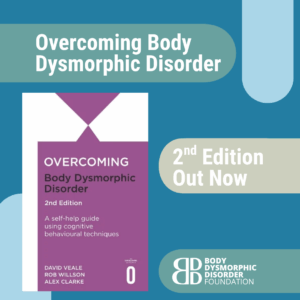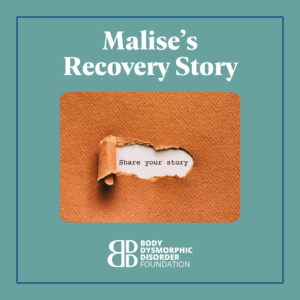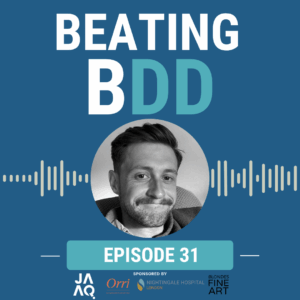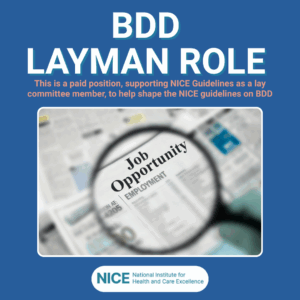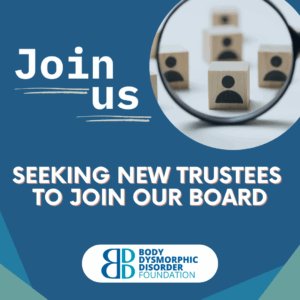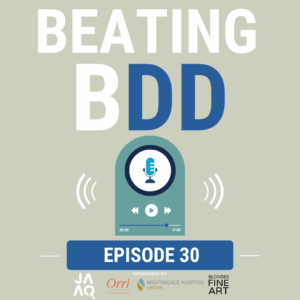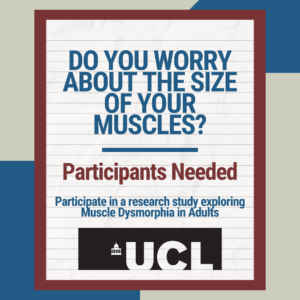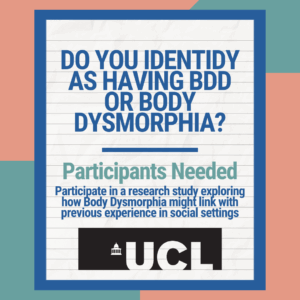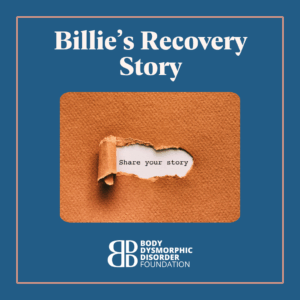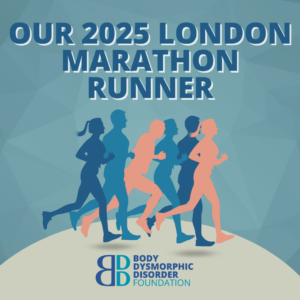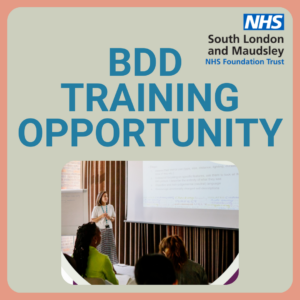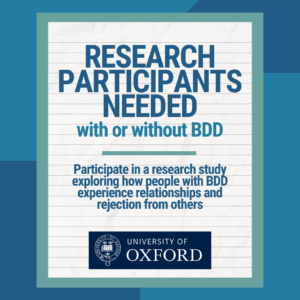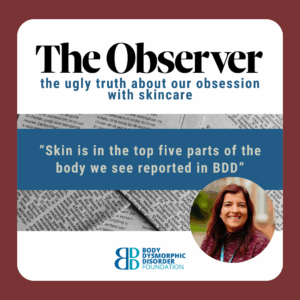If you have BDD, please, please do all you can to keep fighting, to make use of the network of support that charities like the Body Dysmorphic Disorder Foundation are doing so much to promote and develop. And if you’re close to someone who has BDD, keep doing all you can to help. And always let them know how much you care about them. BDD sufferers know they need you; let them know how much you need them too.
It was Thursday morning, 12 March 2015, when my father told me that David wasn’t breathing on his own. Half-asleep, I assumed the staff at the hospital had placed him onto some sort of life-support machine. In a way, I was actually relieved. David had been in a psychiatric ward after being rescued from the edge of Beachy Head by the Chaplaincy Team that patrols the area. Since being admitted into the hospital, he’d been talking about how much he regretted not jumping, and how he’d find a way to end his life there instead. My immediate reaction to my father’s news was that that would be impossible (even for him) if he was on some sort of machine, and so despite the seriousness of the situation, and how terrible it was that it had come to this, I was relieved – almost glad. I thought this would be both the lowest point and a turning point. It couldn’t get any more extreme than this; he’d be shocked into taking positive steps to get better. It would force him to.
“My feelings towards him had crystallised, and were finally clear to me, only now at the exact moment when it was too late to tell him.”
A few minutes later, my father came back to tell me that he was dead. I remember asking him a stupid question about whether they’d phoned us or he’d phoned them. It seemed important to find out, since there must’ve been a miscommunication: my brother wasn’t dead. And in those first few seconds of denial, there was a sudden realisation too, as if all my feelings towards him had crystallised, and were finally clear to me, only now at the exact moment when it was too late to tell him.
Looking back at his life, my brother had undiagnosed autism and Asperger syndrome for as long as I can remember, but the first time David showed signs of BDD was when he faxed home drawings of himself while he was studying in Rome as part of his degree. At school he’d been bullied about how he looked (he’d been bullied about a lot of things) but this was the first time he began to publicly obsess over and express shame about aspects of his appearance. He went on to finish his studies at Cambridge (Medieval and Modern Languages, and Philosophy) and graduated with a scholarship, but he was already battling severe depression. There were many occasions over the years when he’d tell me he wished he’d never left academia – not because of the social side of university life (he actually said he regretted trying to focus on that side of things) – but because studying was one of the few things – perhaps the only thing – that he truly wanted to dedicate his life to, that he could feel a real sense of achievement with. For people like David, whose minds are ever restless, always inquisitive, I think academics is one of the few things that brings them a semblance of peace.
“David’s BDD would eat away at him for the rest of his life. It would consume him; eventually it was nearly all he could think or talk about.”
He left university, but after a couple of jobs that didn’t work out, David’s mental health issues prevented him from working and having any kind of career. He had ongoing depression, but the next time BDD surfaced again was probably about ten years ago when he started to fixate on what he considered to be unacceptable hair loss. He had a successful hair transplant – but not long afterwards he began to talk continually about other perceived flaws: his nose, his jawline, his forehead, the asymmetry (as he saw it) of his face . . . in all likelihood the seeds of being bullied as a child had finally started to take root; certainly the crippling insecurities had been pushed to the forefront of his mind. Combined with his autism, Asperger syndrome and depression, David’s BDD would eat away at him for the rest of his life. It would consume him; eventually it was nearly all he could think or talk about.
It’s a testament however to his character and generosity of spirit that in spite of the scale of his suffering, David was dedicated to helping others through his work as a trustee of the Body Dysmorphic Disorder Foundation. A jack of all trades and master of them all, he was at home helping out on the IT side of things as he was drafting eloquent introductions to how BDD shaped Kafka’s writing. David was passionately committed to advancing understanding of the disorder and raising the level of support available to sufferers. He was immensely proud of how much the Foundation has accomplished in such a short space of time. If only he could be here as it continues to grow and thrive.
“With David on your side, you really felt like anything was possible”
Those lucky enough to have got close to David will never forget him. He lives on in our memories, and in the inspiration and determination he continues to give us. His friends and family lost a unique intellect and an extraordinary person – with David on your side, you really felt like anything was possible, that any problems could be overcome, that any goals could be achieved.
“BDD sufferers know they need you; let them know how much you need them too.”
I can only guess at the level of suffering those affected by BDD go through, but I wish those who take their own lives because of it could see the effect that suicide has on their families and all those who care about them. I wonder if they could see how much it tears lives apart, then despite all their pain, maybe they wouldn’t go through with it. If you have BDD, please, please do all you can to keep fighting, to make use of the network of support that charities like the Body Dysmorphic Disorder Foundation are doing so much to promote and develop. And if you’re close to someone who has BDD, keep doing all you can to help. And always let them know how much you care about them. BDD sufferers know they need you; let them know how much you need them too. Along with how much I loved him, I think that was what I realised at that moment my father told me David was gone.
More stories from the community
